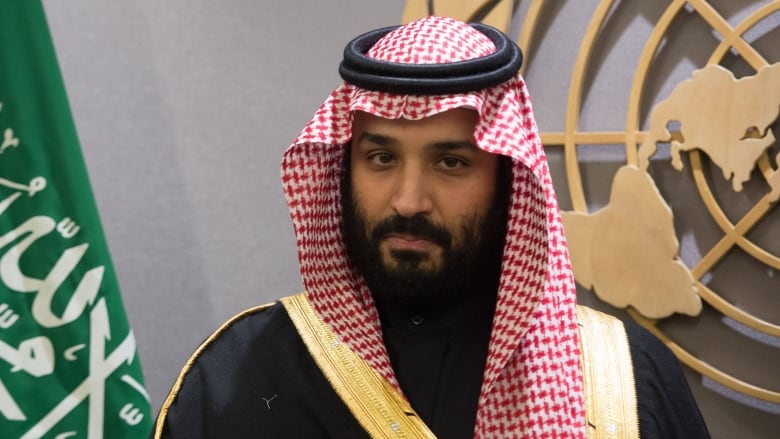State executions have climbed since Mohammed bin Salman took power in 2017, including an alarming rise this year—with 134 people executed as of September 2019.[1] The implementation of judicial and governmental changes beginning in 2008 allowed the Saudi government to weaponize their power in a more systematized way, ultimately resulting in the use of the death penalty as a political weapon to silence dissent, especially in relation to the State’s Shia minority population.
The Role of Internal Judicial and Governmental Reform
The government of Saudi Arabia has come under fire in recent years for allegedly using the death penalty as a political weapon to silence dissent amongst the country’s Shia minority, with death sentences having been disproportionately given to activists from the Eastern Province of Saudi Arabia, where the majority of the country’s Shia minority reside.[2]
Beginning in 2008, there were a series of reforms to the Saudi Arabian judicial system and government made it possible for the Saudi Government to further consolidate its power and more easily use legal processes to discriminate against minority populations. The most significant of these changes include the creation of a new counterterrorism law and Mohammed bin Salman’s rise to power.[3]
In 2014, Saudi Arabia created a new counterterrorism law titled the Penal Law for Crimes of Terrorism and Its Financing, which was reformed in 2017.[4] A U.N report released in 2018 asserted that Saudi Arabia has systematically used its counterterrorism laws to suppress human rights defenders.[5] Since its creation, this law has become the primary means by which the government has weaponized the death penalty against minorities.[6] The counterterrorism law removes sentencing guidelines and contains an overly broad definition of terrorism that criminalizes virtually any speech critical of the government.[7] The 2017 reforms further criminalized a wide range of peaceful acts that bear no relation to terrorism.[8] Since Crown Prince Mohammed bin Salman effectively took power in 2017, Saudi authorities have widened their use of this counterterrorism law significantly.[9]
Increased Application of the Death Penalty Against Minorities
Amnesty International documented the cases of at least 34 Shia men currently sentenced to death—all of them were accused of activities deemed a risk to national security. [10] This is despite the fact that the activities these men were engaged in leading up to their arrests consisted of nothing more than peaceful protests.[11] Among those on death row are defendants who were convicted of offences allegedly committed while they were teenagers.[12] In April 2019, Saudi Arabia carried out a mass execution of 37 people who were convicted on terrorism-related charges.[13] The majority of those executed were Shia men whose convictions were primarily based on confessions allegedly extracted through torture.[14]
Takeaways
Saudi Arabia’s flagrant disregard for minority rights or freedom of expression should cause great concern to the international community. However, given Saudi Arabia’s prominence as one of the world’s major exporters of oil and a key ally of the U.S. in the region, the Kingdom has been largely insulated from serious criticism by major foreign powers capable of pressuring the Monarchy to restrain its despotism and improve its record on human rights. Something that seems especially apparent in light of the world’s fairly muted response to the murder of Jamal Khashoggi at the hands of the Saudi government.[15]
The non-independent nature of a judicial system heavily controlled by the State has led to a lack of adequate protections within the law, resulting in unfair convictions that hinge largely on biased discretion and coerced confessions, thereby reinforcing existing power dynamics and suppressing dissent—something that may have larger implications for the international community in the future. [16]
- The Death Penalty in Saudi Arabia: Facts and Figures, Amnesty Int’l. (Aug. 25, 2015), https://www.amnesty.org/en/latest/news/2015/08/the-death-penalty-in-saudi-arabia-facts-and-figures/; Jenny Awford, Saudi Slaughter: Saudi Arabia Executions Spike in 2019, The Sun (Sep. 15, 2019),https://www.thesun.co.uk/news/9935530/saudi-arabia-executions-increase-134-crucified-beheaded/. ↑
- Mat Nashed, Fearing Execution, Saudi Shia are Forced into a Life in Hiding, Middle East Eye (Apr. 19, 2019), https://www.middleeasteye.net/features/fearing-execution-saudi-shia-are-forced-life-hiding. ↑
- Adam Coogle, Saudi Arabia’s ‘War on Terror’ Is Now Targeting Saudi Shiites, Foreign Policy (Aug. 23, 2017), https://foreignpolicy.com/2017/08/23/saudi-arabias-war-on-terror-is-now-targeting-saudi-shia/. ↑
- Saudi Arabia: Terrorism Law Tramples on Rights, Human Rights Watch (Feb. 6, 2014), https://www.hrw.org/news/2014/02/06/saudi-arabia-terrorism-law-tramples-rights; Penal Law for Crimes of Terrorism & Its Financing (2014). ↑
- Human Rights Council, Report of the Special Rapporteur on the Promotion and Protection of Human Rights and Fundamental Freedoms While Countering Terrorism on his Mission to Saudi Arabia, U.N. Doc. A/HRC/40 (June 6, 2018). ↑
- Saudi Arabia: Terrorism Law Tramples on Rights, supra note 4. ↑
- Saudi Arabia: Events of 2018, Human Rights Watch (2019), https://www.hrw.org/world-report/2019/country-chapters/saudi-arabia. ↑
- Saudi Arabia: New Counterterrorism Law Enables Abuse, Human Rights Watch (Nov. 23, 2017), https://www.hrw.org/news/2017/11/23/saudi-arabia-new-counterterrorism-law-enables-abuse. ↑
- Human Rights Council, supra note 5. ↑
- Saudi Arabia: Death Penalty Used as Political Weapon Against Shi’a as Executions Spike Across Country, Amnesty Int’l. (July 12, 2017), https://www.amnesty.org/en/latest/news/2017/07/saudi-arabia-death-penalty-used-as-political-weapon-against-shia-as-executions-spike-across-country/. ↑
- Id. ↑
- Id. ↑
- Saudi Arabia: 37 Put to Death in Shocking Execution Spree, Amnesty Int’l. (April 23, 2019), https://www.amnesty.org/en/latest/news/2019/04/saudi-arabia-37-put-to-death-in-shocking-execution-spree/. ↑
- Id. ↑
- Joseph Duggan, The Jamal Khashoggi Double Standard is Bad for American Business, RealClear Markets (May 1, 2019), https://www.realclearmarkets.com/articles/2019/05/01/the_jamal_khashoggi_double_standard_is_bad_for_american_business_103721.html. ↑
- 2018 Death Penalty Report: Saudi Arabia’s False Promise, European Saudi Organisation for Human Rights (Jan. 16, 2019), https://www.esohr.org/en/?p=2090. ↑


